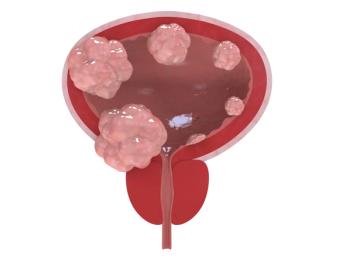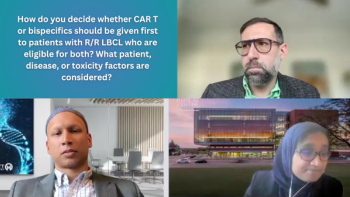
Data from monarchE showed an OS benefit with abemaciclib-based therapy that was consistent across prespecified patient subgroups.

Your AI-Trained Oncology Knowledge Connection!


Data from monarchE showed an OS benefit with abemaciclib-based therapy that was consistent across prespecified patient subgroups.

A survival analysis stratified by demographic and clinical characteristics revealed an OS benefit was observed with across key subgroups.

Patients with cancer are subjected to fewer radiotherapy-induced toxicities because of newer, more advanced technologies.

Meta: Safety outcomes, including the treatment-related AEs and AEs leading to treatment discontinuation, were consistent with or without lenvatinib in ESCC.

Data from POTOMAC support durvalumab plus BCG and induction and maintenance therapy as a new treatment option in BCG-naive, high-risk NMIBC.

New findings reveal that adding durvalumab to neoadjuvant chemotherapy does not enhance HRQOL in muscle-invasive bladder cancer patients.

Hosts Manojkumar Bupathi, MD, MS, and Benjamin Garmezy, MD, discuss presentations at ESMO 2025 that may impact bladder, kidney, and prostate cancer care.

Using multiparametric MRI for initial staging, then cystoscopic biopsy, improves bladder cancer-specific survival compared with transurethral resection of bladder tumor staging.

Alectinib shows promising long-term survival benefits over crizotinib for advanced ALK-positive NSCLC, highlighting significant clinical advancements.

Venetoclax with bortezomib and dexamethasone led to a median PFS of 23.4 months compared with 11.4 months with placebo in patients with R/R MM.

Updated safety findings may support the ARASAFE regimen as a potential standard of care in metastatic hormone-sensitive prostate cancer.

Sevabertinib monotherapy was deemed tolerable across various cohorts of patients who were pretreated and treatment-naïve with HER2-mutant advanced NSCLC.

Results from the Beamion LUNG-1 study showed that first-line zongertinib yielded continued benefit for patients with HER2-mutated NSCLC.

Two hematologic oncologists defined rare lymphomas and highlighted challenges and recent developments associated with these disease types.

Updated results from CheckMate 274 support adjuvant nivolumab as a standard of care for patients with high-risk muscle-invasive urothelial carcinoma.

The safety profile of the atezolizumab with Bacillus Calmette-Guérin in NMIBC was consistent with that of each individual agent.

Proactive disclosure of information by clinical social workers in oncology may help equip patients to handle difficult aspects of cancer treatment.

The safety profile of durvalumab after radiotherapy was consistent with durvalumab after chemoradiotherapy among those with unresectable stage III NSCLC.

In lower- and middle-income countries, accessibility, cost, and talent are obstacles to broadly implementing cellular therapeutics into cancer care.

Investigators plan to present detailed findings from the MajesTEC-3 study at a future medical conference and share them with regulatory authorities.

Mandating additional immunotherapy infusions may help replenish T cells and enhance tumor penetration for solid tumors, including GI malignancies.

The safety profile of pembrolizumab plus chemotherapy with or without bevacizumab was consistent with that observed in previous studies.

Serious AEs occurred in 49% of patients treated with FOLFIRNOX vs 43% of patients treated with chemoradiation for pancreatic ductal adenocarcinoma.

Experts highlight anticipated sessions at the 2025 ESMO Congress, including those on the PSMAddition and EV-303 trials.

The EO2463 off-the-shelf immunotherapy achieved an overall response rate of 46% in patients with follicular lymphoma considered to be in the “watch-and-wait” setting.

Although data for bispecific antibodies are maturing, CAR T-cell therapy has longer-term data that show prolonged and durable efficacy in LBCL.

A novel cancer database may assist patients determine what clinical trials they are eligible to enroll on and identify the next best steps for treatment.

Single-agent pembrolizumab achieved an ORR of 89%, with a 37% CR rate, in patients with advanced desmoplastic melanoma in the phase 2 SWOG S1512 trial.

Anticipated data from the ESMO Congress 2025 may have implications for standards of care across prostate and bladder cancer groups.

Receiving information regarding tumor-associated antigens or mutational statuses from biopsies may help treatment selection in GI malignancies.